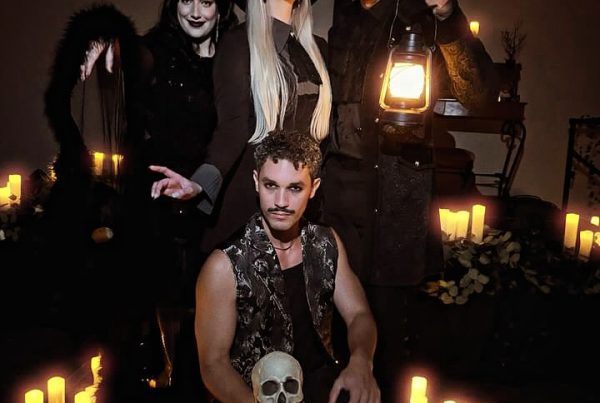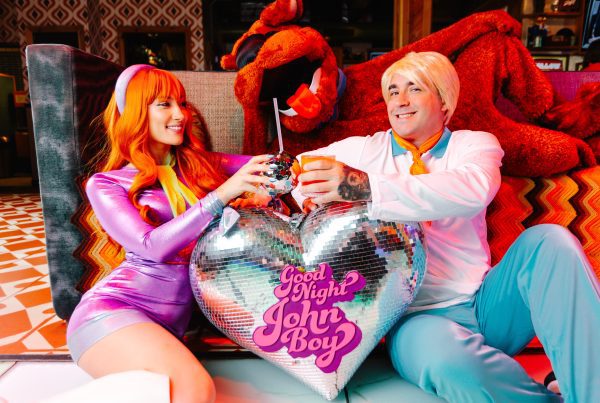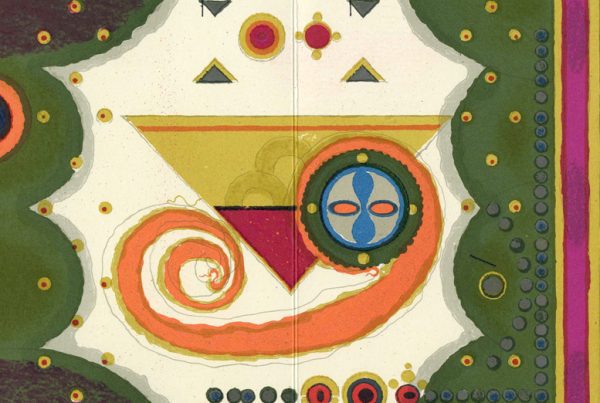When a violent crime is committed, it takes a team of specialized individuals with strong constitutions to investigate the scene, document the findings, analyze the results and, finally, return the crime scene back to “normal.” In this feature from our May 2020 print issue, four Floridians share how they do it.
Detective Marco Villari
A detective in the Boynton Beach Police Department’s major case squad since 2015, Marco Villari is never truly off the clock. He is required to keep his cellphone on at all times, and he’s grown accustomed to 3 a.m. wakeup calls alerting him to the latest homicide, shooting, stabbing or robbery. If that doesn’t keep him busy enough, he’s also been a member of the department’s SWAT Team—the elite group of officers called in for hostage-and-rescue or active shooter situations, as well as high-risk search warrants—since 2014.
When he’s not dealing with a fresh crisis, Villari, 37, digs through files of cold cases (a term he doesn’t care for) in hopes of discovering new leads, his passion for his work an outgrowth of the relationships he builds with the victims’ families. “I still have old cases I’ve picked up from other detectives, and I’m super close with those families,” he says. “I really want to get them some kind of justice.”
ON RESPONDING TO A TYPICAL HOMICIDE
Typically, it happens when I’m off duty. We get called in, and told there’s a homicide, and we respond to the scene. So once we get to the scene, the road patrol officers have already done their initial findings. Sometimes the person is deceased on scene, and the body’s there when we arrive; sometimes they’re transported to the hospital, and we’ll assess the scene, and go to the hospital. You want to see the victim and what the injuries are. And then you get right into interviewing.
ON THE CHALLENGES OF PUBLIC—INSTEAD OF PRIVATE—CRIME SCENES
They do change, because your main focus is canvassing, and figuring out who in this area could have seen something. It’s typical that even though people have seen it, they don’t want to be involved. It’s scary to be a witness to a murder, and you’re scared that if this guy knows you’re cooperating with the police, he could do harm to you or your family. And we understand that. Unfortunately, there’s not really a good method for keeping people confidential when it comes to trying these cases. If you have a witness, they’re going to need to get up there and speak [in court], or else they don’t count.
ON ADOPTING DIFFERENT PERSONAS WHEN INTERVIEWING SUSPECTS
You may be dealing with white-collar people, or you may be dealing with drug dealers, and you need to get them as comfortable as possible. There’s times when a rough approach works, and times when a soft approach works, and you don’t always win. Sometimes you misgauge, and it doesn’t work out in your favor. I have another partner who’s a rough guy. We’re always trying to figure out who’s going to be the rough-approach guy. But sometimes you’re both nice; sometimes you both get heated. There’s no set way. … You just feel them out.
“[VIOLENT CRIME] SLOWS DOWN, AND YOU JUST NEVER KNOW WHEN IT’S GOING TO ERUPT AGAIN. THREE WEEKS AGO FOR US WAS SUPER-BUSY. WE HAD TWO HOMICIDES AND ONE ATTEMPTED MURDER WITHIN A FIVE-DAY PERIOD. FOR US, THAT MAKES US VERY BUSY IN THE MAJOR CASE UNIT.”
ON ONE OF HIS MOST HIGH-PROFILE CASES
One that sticks out to me is a liquor store murder, where an old man was murdered. He was 79, retiring that night. I knew him prior to the murder, so it was hard for me to work it. His family is beautiful; they’re such nice people. That motivates me. A lot of the homicides we work involve drugs, and the victim was involved in something that led to this action. Then you have some that are a true victim, that had nothing to do with it, and this was one of them. He was just working, a simple sweetheart of a guy, and some guys killed him.
ON THE 24/7 NATURE OF THE JOB
Everything happens at the worst times. I’ve missed family functions. I missed my kid’s first soccer game. I’m really lucky, because my wife is the rock of my household, so I could leave, and my wife will take care of the kids, take care of the house, take the kids to soccer. Some of these detectives and officers are single dads, are moms with babies, and it’s harder for them. When we get those calls in the middle of the night, we pitch in to help each other.
ON TAKING WORK HOME WITH HIM
I’m so passionate about my job that when I get home I’m constantly thinking of stuff. My wife is really interested in my job, so she likes to talk to me about my day. She’s one of those civilians that always wanted to be an FBI agent or a detective. She likes to give me feedback about the cases. Some guys say it’s not good to bring your work home. I kind of like venting, and talking to her about stuff—getting a person’s feedback that’s not super “in the box.”
My wife wishes I were more upset when I get called out. It almost seems like I’m happy, and that angers her. But I truly enjoy waking up and coming to work. I enjoy the friends I work with. And I have so much passion for the job.
For the rest of our Crime Scene Heroes feature, click here.
This story is from the May/June 2020 issue of Boca magazine. For more content like this, subscribe to the magazine.







